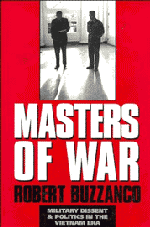Book contents
- Frontmatter
- Contents
- Acknowledgments
- List of Abbreviations
- 1 Introduction: Losing Battles and Winning Wars
- 2 Prologue to Tragedy: U.S. Military Opposition to Intervention in Vietnam, 1950–1954
- 3 Preparing for and Avoiding War: Military Affairs and Politics in Vietnam and the United States, 1955–1960
- 4 Pinning Down the President: JFK, the Military, and Political Maneuvering over Vietnam, January-October 1961
- 5 The Best and Worst of Times: The U.S. War against Vietnam, October 1961–November 1963
- 6 “Seeing Things Through in Vietnam”: LBJ, the Military, and the Growing U.S. Commitment to Vietnam, November 1963-December 1964
- 7 Hope for the Best, Expect the Worst: U.S. Ground Troops Enter the Vietnam War, January-July 1965
- 8 War on Three Fronts: U.S. Forces versus the Viet Cong, Westmoreland versus the Marines, and Military Leaders versus the White House, July 1965-December 1966
- 9 “The Platform of False Prophets Is Crowded”: Public Hope and Private Despair in Vietnam, 1967
- 10 The Myth of Tet: Military Failure and the Politics of War
- 11 Conclusion: Bringing It All Back Home
- Epilogue: “This Is a Real War”: Military Dissent and Politics after Vietnam
- Bibliography
- Index
4 - Pinning Down the President: JFK, the Military, and Political Maneuvering over Vietnam, January-October 1961
Published online by Cambridge University Press: 05 August 2012
- Frontmatter
- Contents
- Acknowledgments
- List of Abbreviations
- 1 Introduction: Losing Battles and Winning Wars
- 2 Prologue to Tragedy: U.S. Military Opposition to Intervention in Vietnam, 1950–1954
- 3 Preparing for and Avoiding War: Military Affairs and Politics in Vietnam and the United States, 1955–1960
- 4 Pinning Down the President: JFK, the Military, and Political Maneuvering over Vietnam, January-October 1961
- 5 The Best and Worst of Times: The U.S. War against Vietnam, October 1961–November 1963
- 6 “Seeing Things Through in Vietnam”: LBJ, the Military, and the Growing U.S. Commitment to Vietnam, November 1963-December 1964
- 7 Hope for the Best, Expect the Worst: U.S. Ground Troops Enter the Vietnam War, January-July 1965
- 8 War on Three Fronts: U.S. Forces versus the Viet Cong, Westmoreland versus the Marines, and Military Leaders versus the White House, July 1965-December 1966
- 9 “The Platform of False Prophets Is Crowded”: Public Hope and Private Despair in Vietnam, 1967
- 10 The Myth of Tet: Military Failure and the Politics of War
- 11 Conclusion: Bringing It All Back Home
- Epilogue: “This Is a Real War”: Military Dissent and Politics after Vietnam
- Bibliography
- Index
Summary
It is inappropriate for any members of the Defense Department to speak on the subject of foreign policy.
Robert Strange McNamaraIn 1956 Senator John F. Kennedy saw the Republic of Vietnam as the “cornerstone of the Free World in Southeast Asia.” Diem's regime, he boasted, “is our offspring, we cannot abandon it.” Four years later, while campaigning for the presidency, Kennedy charged that Dwight Eisenhower had not confronted communism vigorously enough, and he promised a new, activist military program for America, invoking Generals Taylor, Ridgway, and Gavin to add credibility to his criticism that massive retaliation had not provided security against American enemies. Just months later, in his inaugural address, the new commander in chief pledged to “pay any price, bear any burden, meet any hardship, support any friend, oppose any foe, to assure the survival and the success of liberty.”
Despite Kennedy's adversarial world view and strident cold war rhetoric, many recent studies have cleared him of responsibility for the U.S. commitment to and subsequent aggression in Vietnam. Filmmaker Oliver Stone, historian John Newman, and former CIA operative Fletcher Prouty, among others, have contended that the young president had decided by late 1963 to quit Vietnam, reverse the cold war, and challenge the political power of the militaryindustrial-intelligence complex at home. Amid such pacifism, a militaristic cabal led by the JCS and the CIA decided to do away with Kennedy and go to war in Vietnam. Although such revisionism can be lucrative, it is demonstrably absurd.
- Type
- Chapter
- Information
- Masters of WarMilitary Dissent and Politics in the Vietnam Era, pp. 81 - 114Publisher: Cambridge University PressPrint publication year: 1996



